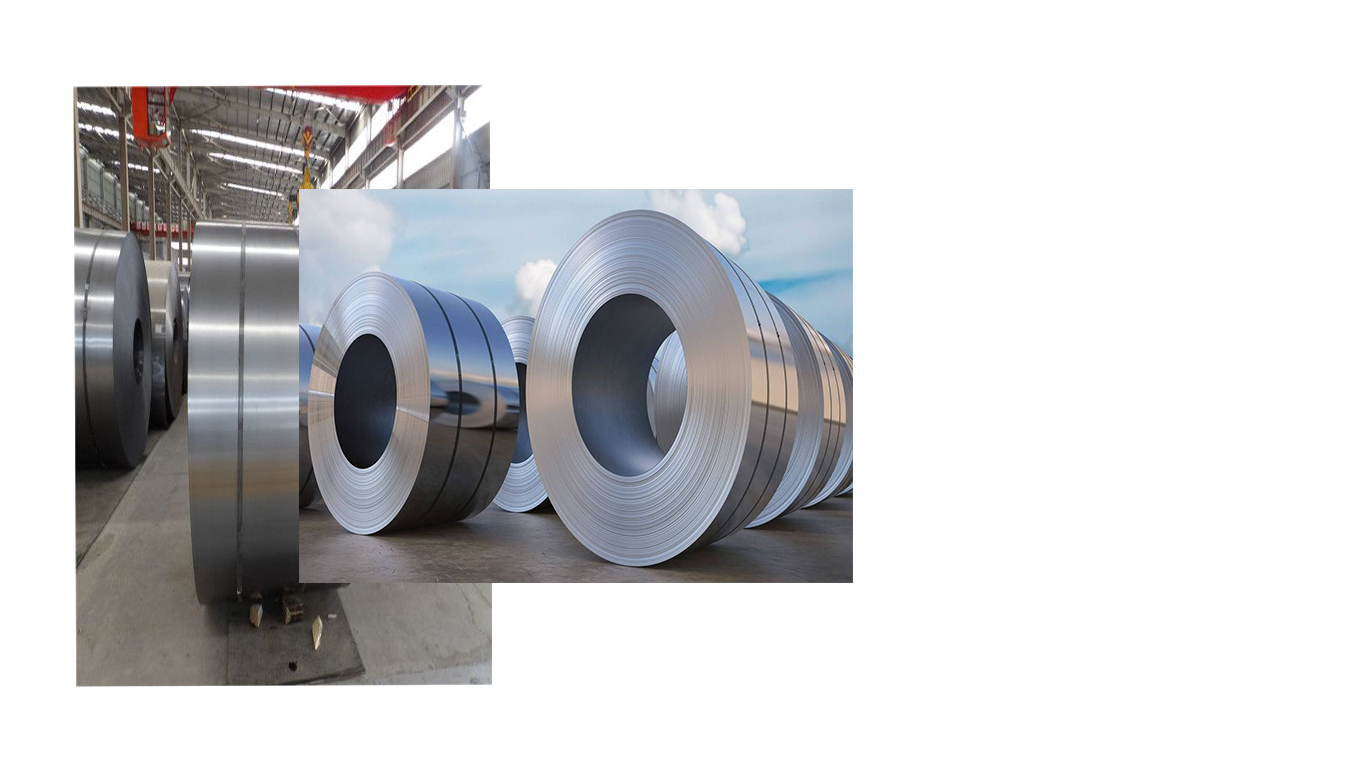Hardened spring sheets

Medium and high carbon steel sheet that has a springy and elastic property that has the ability to be subjected to load without permanent deformation after removal of the load.
1- Elastic deformation (elastic) under these conditions, if the force is removed from the body, the body returns to its original state.
2- Plastic deformation (wax) under these conditions, if the force is removed from the body, the body will not return to its original dimensions.
Springs are objects that return to their original shape and dimensions as a result of the application of force and after removal.
Due to the high forces and deformations that are applied to the springs used in industry, it is necessary to increase the elastic limit of the part, ie steel under high stresses can show elastic deformation. On the other hand, springs are under variable forces and therefore the need for these parts must be high fatigue resistance, so to make springs, steels are used that have appropriate amounts of silicon, manganese, chromium, vanadium and molybdenum.
(Grade: C55 (CK55)- C67 (CK67)- C75(CK75)- C85(CK85)- CRV(5OCRV4
Features
Hardness: Customer Tolerance: 32 HRC to 55 HRC Max
سختی: حدود سختی بین 32 تا 55 راکول سی
Thickness: 0.1 mm min to 4 mm max
ضخامت: بین 0.1 میلیمتر تا 4 میلیمتر
Width: 10 mm min to 400 mm max
عرض: بین 10 میلیمتر تا 400 میلیمتر
Coil Weight: As per customer demand
وزن کویل: بنا به سفارش مشتری
Surface Finish: Bright, Blue polish, Brown & Grey polish
Edge: Round Edge, Slit Edge, Square, Round (one side or both side)
کیفیت سطح: براق، بنفش، خاکستری
Applications and Usages
All kinds of accessories and parts for the construction industry
Knives, scrapers, whiskers, trowels, all kinds of hand saws and sawmills and circular saws and elevator door springs
Car industry
Types of spring flat washers, car roof handle spring, disc and clutch plate parts, brake pad parts and springs, belt retractor spring, seat back filling spring
Home Appliances
Types of springs and spring parts, including: vacuum cleaner wire collector spring, spring spikes and spring clamps and…
All industries
Lathon or shims sheets or spring steel liners that are used in all industries.
Road and rail transport
Road signs that are hammered along the roads to indicate the routes that have a springy and elastic state that returns to its original state in the event of a collision with vehicles
Ceramic tile industry, cement and mining
Ceramic tile guide blade and seal for cement kiln doors and hardened spring anti-wear sheets in mining machinery
Spring
A spring is a resilient body used to store mechanical energy. When a spring is compressed or stretched relative to its free state, it exerts a force in the opposite direction that is proportional to the change in spring length. The force created by dividing the change in spring length is called the fixed spring.
Influence of elements on spring properties
Chromium – Increased tensile strength
Vanadium– Increased tension in high dimensions
Titanium– Resistance to corrosive materials and environments
Manganese– Increased high tensile strength in the event of heat treatment (up to 1400 N / mm)
Silicon and Manganese –Increased tensile strength up to 1850 Newtons per square millimeter
HistoryThe use of simple non-helical springs is abundant in human history. For example, the bow (bow and arrow) is a kind of natural spring.
The use of tweezers became popular in different cultures during the Bronze Age. Spiral springs flourished in the early 15th century, including the use of locks on doors, as well as clocks that used springs in this century. In 1676, Robert Hooke introduced the Hooke Act.
Spring production: Springs are usually made of spring steel (a wide range of steels). Of course, some non-ferrous metals are also used in the construction of springs, such as titanium (for cases where corrosion resistance is desired) or beryllium coper (low electrical resistance).
Types of springs: There are different types of springs that are mostly used in popular use for spiral springs. Here are some types of springs:
Spiral springs (tubular)
Which are divided into two types:
Tensile springs: The distance between their circles is very small and there is a fork at each end.
Compression springs: The distance between their circles is relatively large so that they can be brought closer together due to the compressive load.
Torsion springs: The design of this type of springs is such that they have the ability to create and withstand torque.
Zigzag springs: As their name suggests, they have a zigzag shape. Like springs used in the furniture industry.
Constant force springs: The shape of this type of springs is in the form of tubular strips that apply an almost constant force.
This post is also available in: فارسی (Persian)
welcome to bohlerco.com website, the Fidar Maham Pishro company



